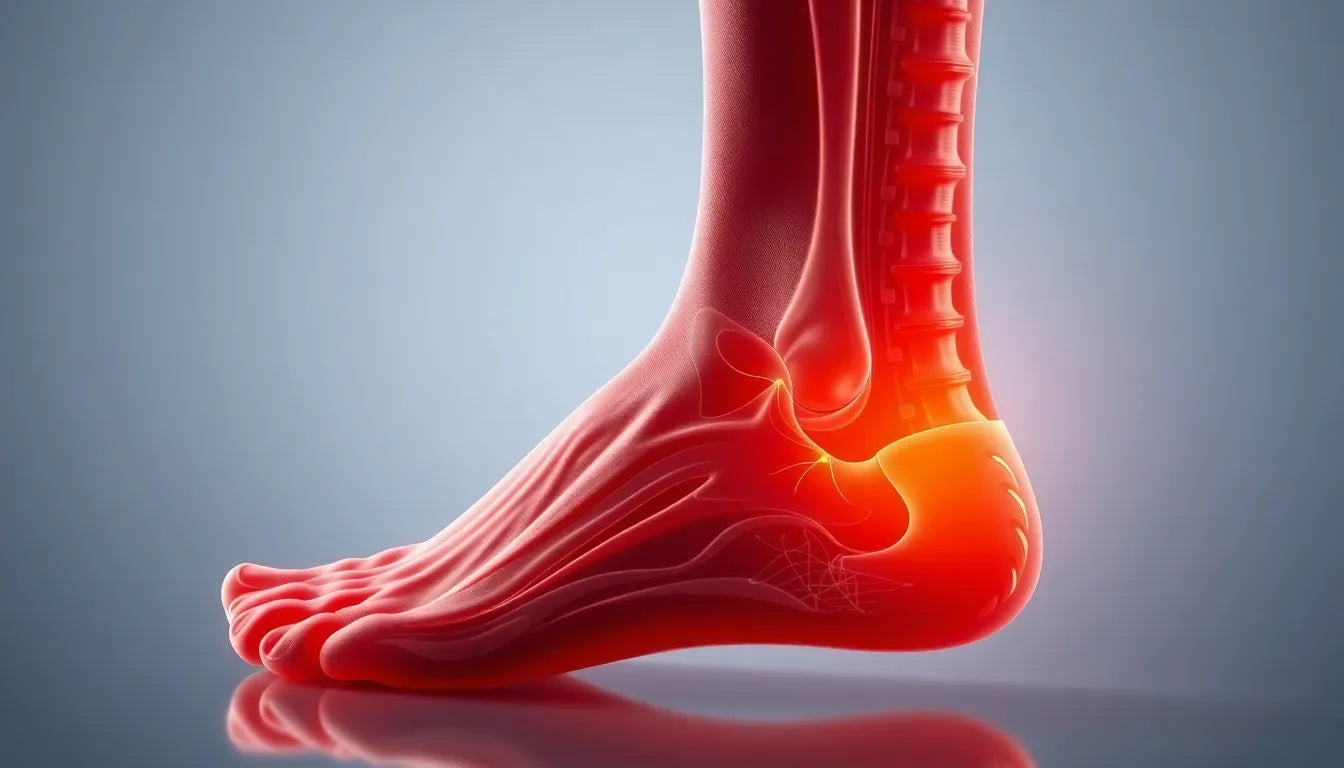Understanding how to help heal a herniated disc begins with comprehending the condition itself. A herniated disc occurs when the soft, gel-like center of a spinal disc pushes through a crack in its tougher exterior casing. This can lead to discomfort and pain, as the protrusion may press on surrounding nerves. Common causes include age-related wear and tear, improper lifting of heavy objects, and sudden twisting movements. These activities can compromise the integrity of the spinal disc, leading to the herniation that many individuals experience.
The symptoms of a herniated disc can vary, but often include back pain, numbness, and tingling sensations that may radiate into the limbs. These symptoms can significantly impact one's quality of life, making it essential to explore effective ways to alleviate discomfort and promote healing.
The importance of natural healing methods
For many, the prospect of surgery or long-term medication use is daunting due to potential side effects and the invasive nature of such treatments. This is why natural healing methods have gained popularity as a preferred alternative. Natural approaches tend to focus on holistic well-being, addressing not just the symptoms but also the underlying causes of pain.
This blog post will delve into various natural strategies to ease herniated disc pain and support the healing process. By exploring these methods, individuals can find ways to manage their condition effectively while minimizing reliance on surgical interventions and pharmaceuticals. From lifestyle adjustments to natural remedies, there are numerous paths to explore that can aid in recovery and enhance overall health.
Lifestyle adjustments for healing a herniated disc
Adopting lifestyle changes is pivotal in managing and healing a herniated disc. One of the most effective adjustments involves improving ergonomics in daily activities. Maintaining proper posture is crucial, as slouching or incorrect seating can exacerbate disc issues. Utilizing ergonomic furniture, such as chairs with lumbar support and adjustable desks, can significantly reduce spinal strain. Consider investing in lumbar support cushions, which help maintain the natural curve of the spine, thereby alleviating pressure on the discs.
Incorporating gentle exercises into your routine is another vital component. Activities like yoga and Pilates not only strengthen core muscles but also enhance flexibility, which can prevent further injury. These exercises focus on stabilizing the spine and improving posture. For instance, poses such as the cat-cow stretch or the bridge pose can be particularly beneficial. Regular physical therapy sessions can also provide tailored exercises that target specific areas, promoting healing and reducing pain.
Weight management plays a crucial role in recovery from a herniated disc. Excess body weight can increase pressure on the spine, hindering the healing process. A balanced diet combined with regular physical activity can help maintain a healthy weight, reducing the stress on your back and facilitating recovery.
Natural remedies to alleviate herniated disc pain
Exploring natural remedies can offer additional relief from herniated disc pain. Heat and cold therapy is a simple yet effective method. Applying a cold pack can help reduce inflammation and numb the area, providing immediate pain relief. After the initial swelling has decreased, using a heat pack can relax tense muscles and improve blood circulation, aiding in the healing process.
Herbal supplements are another avenue worth considering. Anti-inflammatory herbs, such as turmeric and devil's claw, have been shown to reduce pain and inflammation. Turmeric, in particular, contains curcumin, a compound with potent anti-inflammatory properties. Incorporating these supplements into your diet may provide a natural alternative to over-the-counter pain medications.
Acupuncture has gained recognition as a natural treatment for various types of pain, including that caused by a herniated disc. This ancient practice involves inserting thin needles into specific points on the body to stimulate healing and pain relief. Some studies suggest that acupuncture can effectively reduce pain and improve function, making it a viable option for those seeking non-invasive treatments.
Conclusion
Embracing natural methods to ease herniated disc pain not only addresses the symptoms but also supports overall well-being. By making lifestyle adjustments and exploring natural remedies, individuals can significantly enhance their quality of life while minimizing reliance on surgical interventions and pharmaceuticals. It is important to consult with healthcare professionals before starting any new treatment to ensure it is appropriate for your specific condition.
Mind-body techniques for herniated disc relief
Incorporating mind-body techniques into your routine can significantly aid in managing herniated disc pain. These practices focus on the connection between mental and physical health, offering holistic relief and promoting healing.
Mindfulness and meditation
Mindfulness and meditation are powerful tools for managing pain perception and reducing stress, both of which can exacerbate pain. By practicing mindfulness, individuals learn to focus on the present moment, reducing anxiety and improving emotional well-being. Meditation, on the other hand, encourages relaxation and can alter the way the brain perceives pain. Regular practice can lead to a more positive outlook and improved pain management.
Breathing exercises
Breathing exercises are a simple yet effective way to relax muscles and reduce pain. Here is a step-by-step guide to a basic breathing exercise:
- Sit or lie down in a comfortable position.
- Close your eyes and take a deep breath in through your nose, allowing your abdomen to expand fully.
- Hold your breath for a count of three.
- Exhale slowly through your mouth, releasing tension with each breath out.
- Repeat this process for 5-10 minutes, focusing on the rhythm of your breath.
Practicing this exercise daily can help alleviate tension and improve overall well-being.
Conclusion
Natural methods for managing herniated disc pain offer numerous benefits, including reduced reliance on medication and surgery. By adopting lifestyle adjustments, exploring natural remedies, and incorporating mind-body techniques, individuals can effectively manage their condition and enhance their quality of life. However, it is crucial to consult with healthcare professionals before starting any new treatment to ensure it is suitable for your specific condition.
Frequently Asked Questions
What is the fastest way to heal a herniated disc naturally?
The fastest way to heal a herniated disc naturally involves a combination of rest, gentle exercises, and proper nutrition. Ensuring adequate rest allows the body to heal, while exercises strengthen supportive muscles and improve flexibility. A balanced diet rich in anti-inflammatory foods can further support the healing process.
Can a herniated disc heal on its own?
Yes, in many cases, a herniated disc can improve over time with conservative treatment. However, the healing process varies among individuals, and some cases may require medical intervention if symptoms persist or worsen.
Are there any activities I should avoid with a herniated disc?
Yes, it is advisable to avoid activities that place excessive strain on the spine, such as heavy lifting, high-impact sports, and sudden twisting movements. These activities can exacerbate the condition and delay healing.
How long does it take for a herniated disc to heal naturally?
The healing time for a herniated disc varies depending on individual circumstances. Some people may experience relief within a few weeks, while others may take several months to heal completely. Consistently following a natural treatment plan can help expedite recovery.
When should I see a doctor for a herniated disc?
It is important to seek medical attention if you experience severe pain, numbness, or weakness that interferes with daily activities. Additionally, if you notice loss of bladder or bowel control, it is crucial to consult a healthcare professional immediately, as these symptoms may indicate a more serious condition.
Sources
- Mayo Clinic Staff. (2021). "Herniated Disk: Symptoms and Causes." Mayo Clinic.
- Pietrangelo, A. (2020). "Herniated Disc: Causes, Symptoms, and Diagnosis." Healthline.
- Chen, J. (2022). "Herniated Disc Treatment Options." Spine-Health.
- Vadalà, G., Russo, F., & Ambrosio, L. (2019). "Natural Healing of a Herniated Disc." National Center for Biotechnology Information.
- Wedro, B. (2021). "Herniated Disk Treatment Overview." WebMD.


















